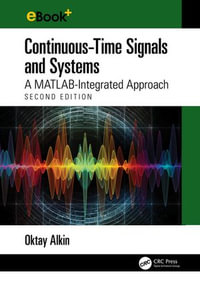
eTEXT
Solving Ordinary and Partial Boundary Value Problems in Science and Engineering
By: Karel Rektorys
eText | 1 November 2024 | Edition Number 1
At a Glance
eText
$228.80
or
Instant online reading in your Booktopia eTextbook Library *
Read online on
Desktop
Tablet
Mobile
Not downloadable to your eReader or an app
Why choose an eTextbook?
Instant Access *
Purchase and read your book immediately
Read Aloud
Listen and follow along as Bookshelf reads to you
Study Tools
Built-in study tools like highlights and more
* eTextbooks are not downloadable to your eReader or an app and can be accessed via web browsers only. You must be connected to the internet and have no technical issues with your device or browser that could prevent the eTextbook from operating.
ISBN: 9781040277911
ISBN-10: 1040277918
Series: Applied and Computational Mechanics
Published: 1st November 2024
Format: ePUB
Language: English
Publisher: Taylor & Francis
Edition Number: 1
You Can Find This eBook In
This product is categorised by
- Non-FictionMathematicsApplied Mathematics
- Non-FictionMathematicsCalculus & Mathematical AnalysisDifferential Calculus & Equations
- Non-FictionComputing & I.T.Computer ScienceSystems Analysis & Design
- Non-FictionComputing & I.T.Information Technology General Issue
- Non-FictionEngineering & Technology
- Non-FictionMathematics























